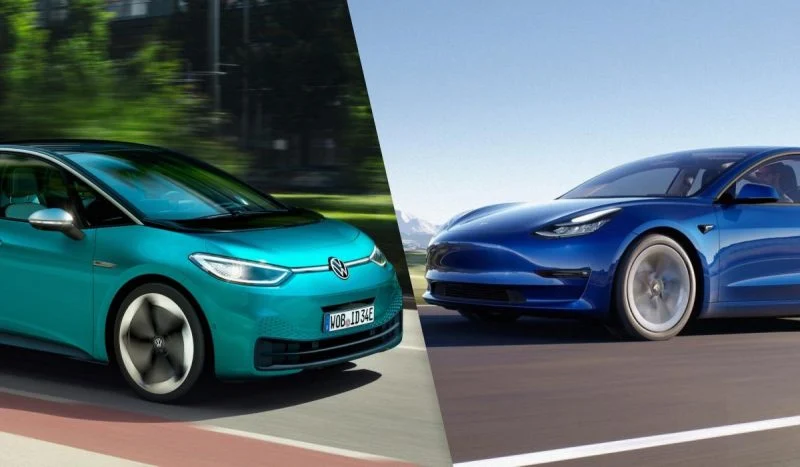The Environmental Benefits of Electric Cars
Electric vehicles (EVs) are increasingly being recognized for their substantial environmental benefits compared to traditional internal combustion engine vehicles. One of the most significant advantages is the considerable reduction in greenhouse gas emissions. Unlike gasoline and diesel-powered cars, which release carbon dioxide and other harmful pollutants into the atmosphere, electric cars produce zero tailpipe emissions. This transition to EVs is crucial in mitigating global warming and combating climate change.
Moreover, the use of electric cars contributes to lower levels of air pollution. Traditional vehicles are a primary source of air contaminants, including nitrogen oxides, particulate matter, and volatile organic compounds, which pose significant health risks to human populations. By replacing these combustion engine vehicles with electric alternatives, cities may observe marked improvements in air quality, leading to healthier living environments for residents and reducing pressure on public health systems.
Another notable benefit is the decreased dependence on fossil fuels. The transportation sector has historically been one of the largest consumers of oil, thereby driving up global demand and contributing to volatile market prices. Electric vehicles, on the other hand, can be powered by a diverse array of energy sources. This flexibility allows for a shift toward renewable energy, such as solar, wind, and hydropower, thus diminishing reliance on non-renewable resources.
As the production and use of electric cars become more widespread, the overall impact on the environment will continue to grow. Each EV on the road represents a step towards a more sustainable future, complemented by a broader commitment to renewable energy infrastructure. By investing in electric vehicles, society can ultimately promote ecological balance while addressing the urgent challenges posed by climate change.
Economic Advantages of Choosing Electric
The transition to electric vehicles (EVs) has gained momentum, offering numerous economic advantages that appeal to both eco-conscious consumers and those looking to optimize their personal finances. One of the primary financial benefits of owning an electric car is the significantly reduced operating costs. Electricity tends to be cheaper than gasoline, providing substantial savings on fuel expenditures. According to various studies, electric vehicles can cost about one-third the price per mile compared to their gasoline-powered counterparts, especially when charged at home during off-peak hours.
In addition to fuel savings, the maintenance costs associated with electric cars are notably lower. Unlike traditional combustion engines, electric vehicles operate with fewer moving parts, which reduces the need for complex maintenance tasks. Components such as oil changes, fuel filters, spark plugs, and exhaust systems are nonexistent in EVs. This simplicity translates to less frequent service appointments and lower overall maintenance bills over the life of the vehicle.
Another significant economic incentive is the availability of government incentives and rebates aimed at promoting electric vehicle adoption. Many regions offer substantial tax credits, rebates, or grants that can offset the initial purchase price of an electric car. These financial incentives may vary based on location, but they can significantly enhance the affordability of acquiring an electric vehicle, making the shift to sustainability more accessible to a broader population.
Moreover, the resale value of electric cars is increasingly becoming a positive aspect to consider. As the market for EVs expands and consumer awareness grows, many models are expected to retain a higher resale value compared to traditional vehicles. Studies indicate that, as buyer demand leans towards environmentally friendly options, electric vehicles will potentially command a premium in the used car market.
In summation, choosing an electric car can result in a smart financial decision through lower operating costs, reduced maintenance needs, available incentives, and favorable resale values. As consumer trends evolve, the long-term savings and benefits of electric vehicles are likely to grow, making them a compelling option for the modern driver.
Luxury and Comfort: The EV Driving Experience
The electric vehicle (EV) landscape has transformed significantly, not just in terms of environmental benefits, but also in luxury and comfort features that redefine the driving experience. One of the most notable advantages of electric cars is their quiet operation. Unlike traditional internal combustion engines, electric engines deliver a serene and peaceful ride, allowing for enjoyable conversations and a more relaxed ambiance during journeys.
Smooth acceleration is another hallmark of the EV driving experience. Electric motors provide instant torque, meaning that acceleration is swift and fluid without the typical lag found in gasoline-powered vehicles. This characteristic not only enhances the driving experience but also contributes to superior control, even in urban environments. As a result, drivers can navigate city traffic with ease, experiencing a responsive performance that traditional cars may struggle to match.
In addition to performance, electric vehicles are increasingly equipped with advanced technology integration, providing drivers and passengers with a plethora of features designed to enhance comfort and convenience. This includes intuitive infotainment systems, smartphone connectivity options, and safety features that are often standard in modern EVs. With large touchscreens and voice recognition systems, drivers can manage navigation, entertainment, and communication seamlessly, creating a user-friendly environment that promotes safety and accessibility.
The spacious interiors of electric vehicles further elevate the comfort level, as many manufacturers have designed these vehicles with ample legroom and cargo space. The absence of a bulky internal combustion engine allows for more creative space utilization, resulting in a more inviting interior. With an increasing variety of models and configurations available in the electric vehicle market, consumers are presented with options that cater not only to their ecological considerations but also to their desire for luxury and comfort. As such, it becomes evident that choosing an electric car is not merely an environmentally conscious decision; it is also an investment in an enhanced driving experience.
Future Trends in Electric Vehicle Technology
The electric vehicle (EV) industry is witnessing a remarkable evolution, fueled by innovative technologies designed to enhance battery performance, charging efficiency, and user experience. One significant advancement is the development of next-generation battery technologies. Traditional lithium-ion batteries are being supplemented with solid-state batteries, which are expected to offer higher energy densities, faster charging times, and improved safety profiles. With these advancements, consumers can look forward to electric cars that can travel longer distances on a single charge, addressing one of the common concerns about EV ownership: range anxiety.
In addition to battery advancements, faster charging solutions have emerged to facilitate the growing number of electric vehicles on the roads. Technologies such as ultra-fast charging stations and improved DC fast chargers are making it increasingly convenient for drivers to replenish their vehicle’s power supply. Some modern charging stations can provide an 80% charge in as little as 20 minutes, effectively transforming the EV refueling experience into one that is comparable to traditional gasoline vehicles. This enhancement serves to alleviate the time constraints associated with charging and strengthens the viability of electric cars as a mainstream option.
Furthermore, the integration of autonomous driving capabilities in electric vehicles is set to shape the future of personal transportation. Automakers are investing heavily in advanced driver-assistance systems (ADAS) and self-driving technologies, which aim to not only elevate comfort but also enhance the safety of passengers. By reducing the need for manual operation, these innovations can offer a seamless driving experience that aligns well with the sustainable ethos of electric vehicles.
As the electric vehicle market continues to expand, fueled by technological advancements and increasing consumer acceptance, it is evident that ownership of an electric car is not just an investment in sustainability but also in comfort and convenience. With these future trends, electric vehicles are positioned to dominate the automotive landscape in the coming years.


No responses yet